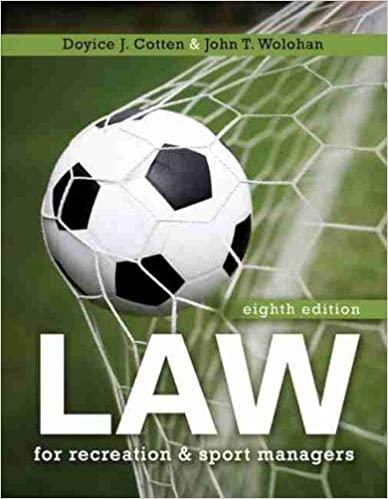Question
Article 39 of the Restatement (Third) of Restitution reads as follows: If a breach of contract is both material and opportunistic, the injured promisee has
Article 39 of the Restatement (Third) of Restitution reads as follows:
If a breach of contract is both material and opportunistic, the injured promisee has a claim in restitution to the profit realized by the defaulting promisor as a result of the breach. Liability in restitution with disgorgement of profit is an alternative to liability for contract damages measured by injury to the promisee.
Commentators have described section 39's adoption as the equivalent of a "quiet revolution" that "is breathtaking in its potential transformation of the traditional contractual landscape." Caprice L. Roberts, Restitutionary Disgorgement as a Moral Compass for Breach of Contract, 77 U. Cin. L. Rev 991, 993 (2009). What is so revolutionary about this provision? How does it differ from the traditional approach to contract damages described in your textbook?
Provisions in the Restatement are not legally binding unless and until they are adopted in a particular jurisdiction. Would you encourage your jurisdiction to adopt section 39? Why or why not?
Step by Step Solution
There are 3 Steps involved in it
Step: 1

Get Instant Access to Expert-Tailored Solutions
See step-by-step solutions with expert insights and AI powered tools for academic success
Step: 2

Step: 3

Ace Your Homework with AI
Get the answers you need in no time with our AI-driven, step-by-step assistance
Get Started


